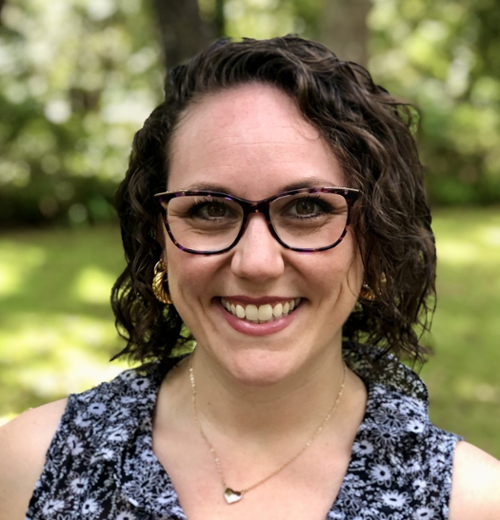SPIDERS Scholar Feature: Jodi Arroyo Nagel
March 4, 2024
 Jodi Arroyo Nagel is a SPIDERS scholar in the Educational Leadership doctoral program at UNF. Project SPIDERS stands for School-University Partnerships Influencing aDvocacy and Engaging Rural Special educators. This scholarship program for doctoral students is a partnership between the University of Oklahoma, University of Louisville and the University of North Florida. Project SPIDERS prepares special education personnel who are well-qualified for, and can act effectively in, leadership positions in high need rural school systems.
Jodi Arroyo Nagel is a SPIDERS scholar in the Educational Leadership doctoral program at UNF. Project SPIDERS stands for School-University Partnerships Influencing aDvocacy and Engaging Rural Special educators. This scholarship program for doctoral students is a partnership between the University of Oklahoma, University of Louisville and the University of North Florida. Project SPIDERS prepares special education personnel who are well-qualified for, and can act effectively in, leadership positions in high need rural school systems.
Jodi earned her bachelor’s degree in elementary education from the University of Florida and her master’s degree in curriculum and instruction with a focus in trauma-informed education from Concordia University. With ten years of teaching experience exclusively in Title 1 schools, Jodi has taught special education at every grade level. Currently, Jodi holds multiple roles at a rural middle-high school in Levy County, serving as a 9-12 Special Education Teacher, 6-12 Student Services Staffing Coordinator and a 6-12 Multi-Tiered System of Supports (MTSS) Coordinator.
What inspired you to pursue a doctoral degree in Educational Leadership through Project SPIDERS? I have always dreamed of pursuing a doctoral degree, but it was not until I learned about Project SPIDERS that I felt compelled to begin this journey. Upon reading about the program in an email sent to all special educators in my district, I recognized the incredible opportunity it presented and knew I had to apply. Given the chance to earn my doctoral degree while continuing to work full-time and having it fully funded was too remarkable to pass up. Despite feeling daunted by the process, I decided to seize the opportunity. I am still amazed that I was selected among such exceptional scholars; learning alongside them has been a privilege.
Describe the focus of your current research within the Project SPIDERS program? Within the Project SPIDERS program, scholars are collectively working on various projects across three partnering universities. My personal research focuses on effective implementation of multi-tiered system of supports (MTSS) at the secondary level and the introduction of innovative MTSS programs. MTSS serves as a framework for educators to provide academic and behavioral strategies for students with diverse needs. Alongside two other SPIDERS scholars, I will be presenting on MTSS implementation in two rural secondary schools at the ACRES (The American Council on Rural Special Education) conference in April.
What are some of the challenges you have encountered or anticipate to encounter in your research or work within the realm of rural special education? How did you or do you plan to address them? One significant challenge has been finding adequate time for research and exploration alongside my coursework and SPIDERS commitments. In rural special education, both resources and personnel are notoriously scarce, leaving little time for additional endeavors. However, I have discovered making small, incremental changes can yield significant results. By applying principles of Change Theory and addressing resistance among stakeholders, I've found success in implementing MTSS practices within my own school. In rural special education, I've learned that a slow and steady approach can be the most effective.
How has your work through Project SPIDERS influenced your career aspirations or goals in advocating and engaging with rural special educators? Through my involvement with Project SPIDERS, I’ve developed a newfound passion for special education policy. I envision my career progressing towards advocacy rooted in policy change initiatives at the district level and beyond.
